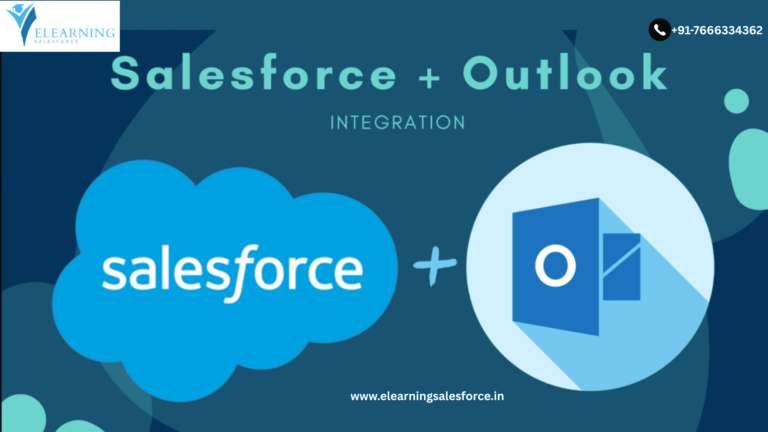If you’re thinking about a job in Salesforce, you’re undoubtedly wondering if coding is necessary. In a nutshell, it depends. Businesses all across the world utilize Salesforce, an extraordinarily potent platform, to automate procedures, optimize operations, and manage client relationships. The good news is that you can start using Salesforce without necessarily knowing how to code.
We’ll go over the fundamentals of Salesforce in this blog, discuss if coding is required, and highlight the most important ideas for a beginning. In order to assist you get started with Salesforce and position yourself for success, we’ll also offer some helpful advice.
What is Salesforce?
Before we start writing code, let’s quickly review what Salesforce is. Salesforce is fundamentally a cloud-based platform for customer relationship management (CRM). It assists businesses in centrally managing a variety of tasks, including marketing, customer support, and sales. Salesforce enables companies to automate procedures, store customer data, and obtain insights to enhance customer interactions.
However, Salesforce’s adaptability is what makes it so well-liked. It provides a variety of features and capabilities, and the platform may be tailored to meet the particular requirements of any company. Salesforce offers something for everyone, regardless of whether you work as an administrator, developer, or consultant. This is where your potential comes in.
Does Salesforce Require Coding?
The short answer? Not always. Salesforce offers a variety of roles and opportunities where you can make an impact without needing to code. Here’s a breakdown:
1. Salesforce Administrator (No Coding Required)
Managing the platform’s settings, users, and security features falls within the purview of a Salesforce administrator. You’ll be in charge of things like managing user access, configuring dashboards, and producing reports—all of which don’t involve any coding. Although understanding fundamental mathematics might be useful, administrators primarily use Salesforce’s point-and-click tools.
2. Salesforce Business Analyst (No Coding Required)

In order to comprehend stakeholders’ business needs and convert them into Salesforce solutions, business analysts collaborate closely with them. Although you might need to comprehend Salesforce’s technical features, coding is not a daily task. Instead than writing code, this position requires more problem-solving and communication abilities.
3. Salesforce Developer (Yes, Coding Required)
Yes, coding is necessary if you want to work as a Salesforce developer. Apex, the programming language used by Salesforce, and Visualforce, which is used to create custom user interfaces, are used by developers to create and modify applications on the Salesforce platform. Lightning Web Components (LWC) are another tool that developers utilize to improve the front-end user experience. If you have a strong interest in coding, this position will allow you to use your programming abilities to create unique Salesforce solutions.
4. Salesforce Consultant (Coding Optional)
Businesses can maximize their Salesforce implementation with the assistance of a Salesforce consultant. Although you don’t have to know how to code, it’s important to know how to set up the platform and handle challenging business issues. While some technical skills might be helpful, most consultants do not need to know how to code. Consultants frequently collaborate with administrators and developers to build Salesforce solutions.
Why Is This Important for Beginners?
Salesforce’s versatility is one of its best features. Don’t worry if coding isn’t your thing and you’re just getting started! There are many positions at Salesforce that don’t need coding, and you can still succeed in your career. Additionally, companies from a variety of industries are looking for qualified people to assist them in utilizing the platform, which is driving up demand for Salesforce specialists.
Gaining proficiency with Salesforce’s point-and-click technologies can lead to well-paying, in-demand positions like administrator, consultant, and business analyst.
But if you’re interested in coding, you can still learn more. You can move into development as you get more experience, picking up Apex, Visualforce, and other programming languages along the way.
Practical Tips for Getting Started with Salesforce
- Start with the Basics
If you’re completely new to Salesforce, begin with the fundamentals. Learn about Salesforce objects, fields, and relationships. The Salesforce Trailhead platform is a great place to start, offering free modules for beginners. - Focus on Point-and-Click Tools
For non-coders, the best way to get started is by mastering Salesforce’s point-and-click tools. Learn how to customize fields, create workflows, and design reports. This will give you a solid foundation before diving into any coding. - Leverage Salesforce Trailhead
Trailhead is Salesforce’s free, online learning platform, and it’s perfect for beginners. It offers interactive, hands-on modules and tracks that guide you through everything from becoming a Salesforce administrator to advanced developer topics. Plus, it’s completely free! - Explore Salesforce Certifications
Certifications are a great way to boost your credibility and career prospects. Start with the Salesforce Administrator certification if you’re a beginner. As you progress, you can explore other certifications like Salesforce Developer or Salesforce Consultant. - Network and Join the Salesforce Community
Salesforce has a vibrant global community. Whether it’s local user groups, online forums, or events like Dreamforce, connecting with other professionals can be a great way to learn and grow in your Salesforce career.
Real-World Example
Let’s examine a practical example: A Salesforce Administrator was recently employed by XYZ Corp, a mid-sized retail company, to improve customer service procedures. Without writing a single line of code, the administrator was able to build up reporting dashboards, automate case management, and enhance team collaboration using Salesforce’s Service Cloud. The outcomes? Customer satisfaction at XYZ Corp. increased noticeably, while customer service efficiency soared. This only serves to demonstrate that you don’t need to know how to code to have a big influence in Salesforce.
Conclusion: Your Salesforce Journey Starts Here!
So, is coding necessary for Salesforce? The role you choose will determine this. Although developers must be able to code, many Salesforce positions, including administrator, business analyst, and consultant, do not call for coding expertise. Salesforce has countless opportunities to advance your career, regardless of your preference for technical or non-technical professions.
Check out our advanced learning resources on [Your Website] if you’re prepared to start your Salesforce career. We have the resources and assistance you need to be successful whether your goal is to work as an administrator, developer, or consultant.
Keep in mind that everyone started off as a beginner. You’ll be astounded by the potential of Salesforce if you begin your adventure now!
you may be interested in this blog here:-
Oracle enterprise Data management (EDMCS)
SAP ABAP – Unveiling the Journey from Basic to Advanced OData Services
Generative AI in Manufacturing Industries: My Journey to Production Line Optimization
C++ Programming Course Online – Complete Beginner to Advanced




